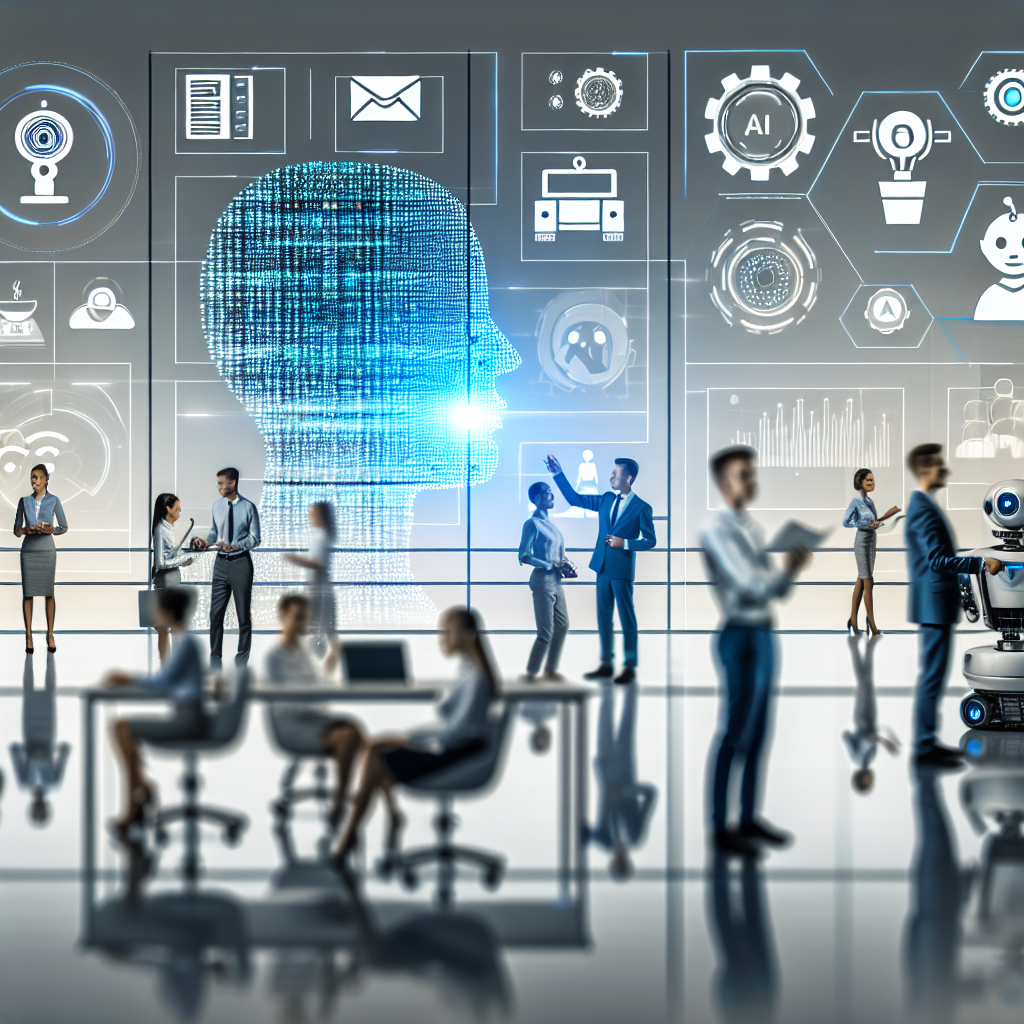Harnessing AI: Transforming Workplaces, Empowering Employees, and Addressing Ethical Challenges

_"AI is not just a tool but a powerful catalyst for change, shaping the future of work and production capacity."_
```html
AI and Workplace Transformation
Artificial intelligence is not just a futuristic concept; it is actively reshaping the workplace and altering how businesses operate. By seamlessly integrating AI with automation, companies can streamline repetitive tasks and foster a more productive environment. Technologies such as Robotic Process Automation (RPA) and smart assistants like Google Assistant and Microsoft Cortana are increasingly taking over mundane tasks, freeing employees to focus on strategic and creative activities. According to the 2023 McKinsey report, up to 30% of working hours could be automated by 2030, offering businesses substantial opportunities to enhance efficiency and quality.
Adapting Employee Skills
As AI continues to evolve, so do the skills that employees need. To remain competitive, workers must adapt to new technologies and acquire expertise in AI and data analysis. Companies are stepping up by offering courses and training programs, exemplified by initiatives like IBM's SkillsBuild platform. These efforts not only boost productivity but also empower employees, fostering confidence in their ability to navigate a future increasingly intertwined with AI.
Ethical and Social Challenges
The rapid adoption of AI comes with significant ethical and social considerations. Ensuring algorithms are fair and non-discriminatory is vital. The article highlights a specific case where Microsoft's AI bot produced offensive content due to poor configuration, underscoring the importance of vigilant oversight. Beyond ethics, there is also the concern of job displacement. Although automation could replace 85 million jobs, the World Economic Forum reports that 97 million new roles will emerge, showcasing a net positive outlook if employees are willing to adapt and learn.
Cybersecurity Considerations
AI introduces new challenges in cybersecurity. Protecting employee and customer data from breaches is paramount. Companies must adopt robust security measures, such as multi-factor authentication and data encryption, while also ensuring continuous network monitoring. The breach experienced by OpenAI in January 2024 due to a bug in the Redis library serves as a stark reminder of the critical need for reliable data protection strategies.
In summary, artificial intelligence is both a catalyst for workplace innovation and a driver of efficiency. Companies and employees alike must embrace these changes, adapt their skills, and implement ethical and secure practices to truly harness AI's transformative potential.
```
